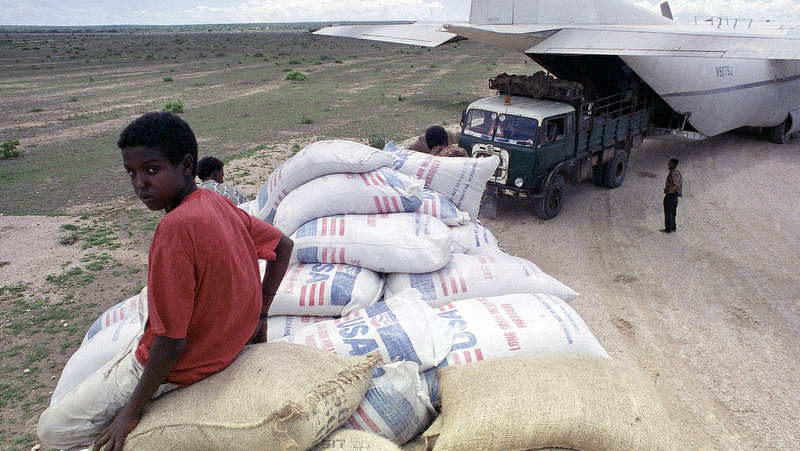
After decades of food relief agencies providing food to Somalis, Somali farmers will now provide food to feed their countrymen by contributing high-quality grain to the U.N.’s World Food Program (WFP), according to the U.N.
Farmers from south-central Somalia have sold 200 metric tons of high-quality maize to WFP. Their grain contributions will be redistributed to areas within the country that have inadequate food stocks, the U.N. News Service reported on Thursday.
The country’s “grain basket,” located in the south-central region, had been severely affected by conflict and drought in the past.
A program for the farmers was supported with funding from the Austrian government, in addition to other support from the European Union, the U.N.’s Food and Agriculture Organization (FAO) and WFP. Under the program, the farmers received training on various aspects of contemporary farming from experts from the FAO and WFP. These skills have been essential in ensuring good quality grain for WFP.
“This initiative shows that Somali farmers are not helpless,” said Luca Alinovi, the FAO’s outgoing representative in Somalia. “With minimal assistance including agricultural inputs, tools, technical skills in storage, grading and marketing, they can make a great difference.”
This is a major breakthrough for the farmers, the U.N. reported, especially coming from an area that faced severe famine less than three years ago. In 2011, the U.N. declared a food crisis for four million people in Somalia, as the country struggled with the worst drought to affect the region in 60 years. It was estimated that more than 260,000 people died in that event, half of whom were under the age of six, the Associated Press reported.
“Strengthening livelihoods and increasing resiliency is an integral part of WFP’s strategy in Somalia,” said Stefano Porretti, WFP Country Representative in Somalia, the U.N. reported. “WFP will continue to support small-scale farmers in Somalia by empowering them to produce and sell more food, so as to become competitive players in local markets.”
For over 12 years, experts from the Western aid groups have worked with Somali farmers in several communities to train them in post-harvest handling and storage, as well as warehouse management, in order to boost production quality and limit losses by keeping the grain free of contamination and pests. Farmers also learned how to grade their grain. All of these new skills are aimed at increasing the quality of their produce.
Now they are able to grow maize that meets international quality standards in sufficient quantities that they can sell to WFP, which will use the locally-grown grain in its food assistance programs for the most vulnerable Somalis living with the greatest levels of food insecurity.
“Despite these advances, Somali farmers only meet 40 percent of the country’s domestic cereal demand,” the U.N. News Service report noted. “According to the latest figures from the Office for the Coordination of Humanitarian Affairs (OCHA), an estimated 857,000 people inside Somalia are currently ‘in crisis and emergency conditions’ in terms of food insecurity.”
Farming in Somalia, like other sectors, has been greatly affected by ongoing conflict and the country’s state of chaos, which spanned two decades, bringing all activity to a halt while the population suffered through several famines. Somalia was ranked by the Fund for Peace, which works in conjunction with Foreign Policy magazine, as the number one failed state on the planet for 2013.
Currently, African Union Mission in Somalia (AMISOM), works to maintain peace in the seaside capital, Mogadishu. But security remains precarious, as al-Shabab, a militant group with links to al-Qaida, carries out periodic attacks in the capital.

